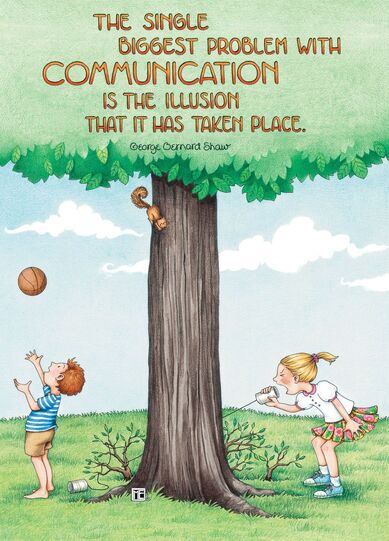
In both instances, my reaction, masked by a polite smile, was the same: That’s the best you got?
You see, what I wanted to be recognized for was the stuff that came hard. The things I had to work at. The big things.
Fast-forward a few years, I get it.
Now, as a communications consultant, most of what I do starts with listening. Many communications consultants have the equivalent of x-ray hearing. We’re paying attention to how things are said—tone, pitch, intonation, turn taking, who’s talking over whom, who speaks last—and (just as important) what’s not said. We’re thinking about what conversations are missing, and how we force that gust of info through an organization. We’re also standing up in the lighthouse, looking out for confusion. Some dogs are trained to sniff for truffles—I can sniff out a misunderstanding.
(Thank you for indulging that jumble of metaphors and not judging.)
So what’s my process? How do you listen better, more deeply?
Here are four things you can do today to improve your listening in your next meeting
- Board the boat: Setting the context for a meeting up front, and making sure everyone is “on the same boat,” as one of my colleagues often jokes, is essential. “We left off that ___ and we want to discuss ____.” Bonus: levity. The boat reference always brings a chuckle, and science tells us that we do better work when we also share a laugh.
- Slow down: If you’ve ever transcribed a minute of talk, you know you have to STOP, REWIND, REPLAY…several times. We can’t possibly catch everything that’s said the first time around. In a discussion, that means rephrasing, asking for clarity, and—yes—slowing things down if needed. “Let me make sure I got this right…” You’ll feel unpopular. Our culture rewards speed and getting things quickly. Yet I have found that spending a minute or two up front to ensure understanding is worth hours of rework at the back end.
- Listen with your eyes: I was in a meeting last week with a group of leaders who were looking for ways to be more present with their staff. One of them had been “scolded” by a team member, who asked her to “listen with her eyes.” It speaks to the times. Even in meetings, we’re tempted to “quickly respond” to a text or IM. “It’ll just take a second,” we think. Maybe so. But ask for a minute’s pause if you need to tend to something that pops up. Avoid sidebars. Put up your “do not disturb” and hold a pencil if you can’t keep your hands off the keyboard.
- Double check: At the end of meetings, I am often the one who stops to check everyone’s understanding of action items and follow ups. “Let me recap what I heard…” It feels annoying sometimes, I’ll admit. It’s a lot of who’s on the hook for what, by when. But it results in a lot of, “glad I checked” moments.
I recently heard design guru Bruce Mau speak about his book, Mau: MC 24, Bruce Mau's 24 Principles for Designing Massive Change in Your Life and Work. One of the things he said is,

